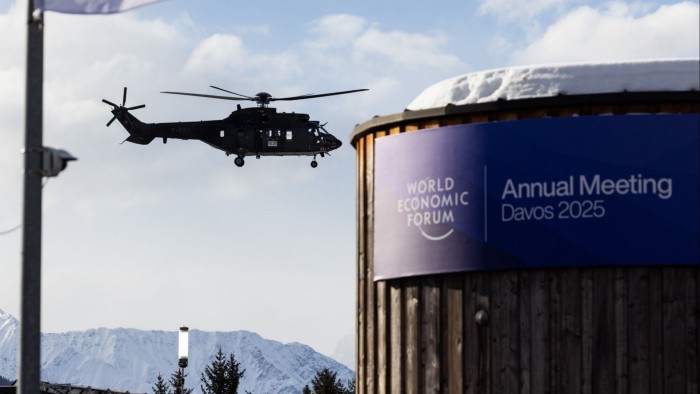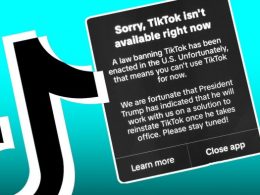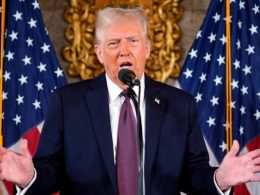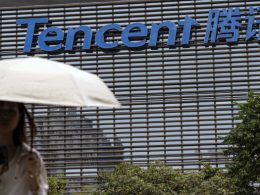Unlock the White House Watch newsletter for free
Your guide to what the 2024 US election means for Washington and the world
Dealmaking, deregulation and threats to global trade are expected to dominate the conversation among executives gathering in Davos this week, as Donald Trump’s return to the White House shifts the focus of business leaders away from social issues towards growth.
Many of the leading executives due to travel to the Swiss Alps for the annual meeting of global decision makers at the World Economic Forum will first attend events in Washington to mark Trump’s inauguration on Monday.
The incoming US president, who is set to address the Davos meeting later this week by video link, has promised to sign dozens of executive orders upon taking office, including moves to increase US energy production and cut red tape.
“It is all about growth”, said Simon Freakley, chief executive of consultancy AlixPartners. “Every investor worships at the altar of growth, every CEO serves at the altar of growth and is thinking about how to drive growth in this environment.”
The prospect of the Trump administration has boosted corporate optimism in the US, where the economy is already outpacing much of the rest of the world and its stock markets are near highs. A survey of 900 experts from academia, business and government conducted by the WEF ahead of this week’s event showed a sharp fall in the perceived risks from an economic downturn or rising inflation when compared to this time last year.
However, the potential impact of Trump’s promised trade tariffs has become a big cause for concern. The survey showed that “geoeconomic confrontation” was now considered one of the biggest risks over the next two years.
“I expect the WEF to be dominated by geopolitical uncertainty”, said Christian Klein, chief executive of German software company SAP. “As we navigate the challenges and opportunities of 2025, adjusting to new regulatory policies will also be a top priority.”
Jim Rowan, chief executive of Volvo Cars, which is majority-owned by Chinese carmaker Geely, said the world had become “more turbulent and complex”. He identified the disruption caused by the trade tensions, as well as the need for decarbonisation and delivering on the promise of AI.
Huw van Steenis, vice-chair at management consultancy Oliver Wyman, said that Davos attendees had “rarely been so split on their investment outlook”.
“Amongst US financiers, there is a shared narrative of animal spirits and deal momentum,” he said. “Whether the new Trump administration will amplify American exceptionalism and divergence from Europe and China is on almost everyone’s minds.”
As the world readies for the Trump second term, regular attendees to Davos expect to see a change in tone, despite an official programme replete with sessions on issues ranging from clean tech to water usage to LGBTQI+ rights. Trump’s swearing-in ceremony is set to clash with the opening event in Davos on Monday: a concert to highlight the threat facing Antarctica’s glaciers.
“We’re anticipating a rebalancing of the Davos agenda this year as, ultimately, CEOs want to get stuff done”, said Christoph Schweizer, global chief executive of Boston Consulting Group. The top priorities, he said, would be productivity, generating returns from AI, and preparing for increased M&A activity.
For decades the Davos conflab has been a fixture of the corporate calendar and an opportunity to set the tone for the year ahead.
The list of almost 3,000 attendees this week includes the Uber chief executive Dara Khosrowshahi, Brian Moynihan of Bank of America, Albert Bourla of Pfizer, Marc Benioff of Salesforce and James Quincey of Coca-Cola. Among the world leaders taking the stage will be European Commission president Ursula von der Leyen, German chancellor Olaf Scholz and Argentina’s Javier Milei, who is due to arrive after he attends the Trump inauguration.
But the event faces increased questioning about its purpose, with critics complaining that it fails to reflect the conversations taking place in the real world.
One Davos regular said he was not attending this year because it was “too expensive given the value proposition” and “less and less relevant”. A Silicon Valley executive who has frequently attended in the past said this year’s gathering had been “totally overshadowed” by the inauguration, adding: “What Trump says is far more important than anything there.”
Source link









